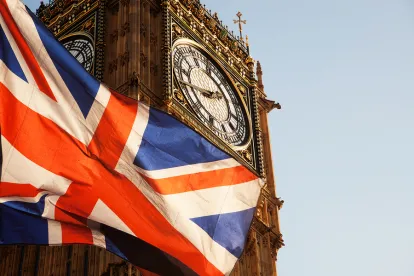SUMMARY
The commercial rent moratorium was due to come to an end on 30 June 2021 - see previous alerts:
-
COVID-19: Government extends the eviction ban for commercial leases to 30 June 2021
-
COVID-19: Government extends the eviction ban for commercial leases to 31 December 2020
-
COVID-19: Government issues new code of practice for landlords and tenants
Many businesses, particularly travel and hospitality are still struggling to operate, and with the extension of the lockdown period also now having been announced, certain sectors such as hospitality and leisure particularly, have never been in as precarious a position. Commercial landlords and tenants have been operating under government guidance such as the commercial lease code of practice referred to above, in order to manage their respective lease obligations, but that has guidance status only. Many landlords and tenants had not been able to reach a consensus agreement on how their leases would work moving forward. So there has clearly been tension between landlords and tenants with the deadline of 1 July approaching.
BACKGROUND
Earlier in March this year, the Rt Hon Robert Jenrick MP (Secretary of State for Housing, Communities and Local Government) and Rt Hon Kwasi Kwarteng (Business Secretary), announced that:
-
The protection from forfeiture of business tenancies for non-payment of rent under s82 of Coronavirus Act 2020 due to expire on 31 March would be extended to 30 June 2021 and the Ministry of Justice also laid a Statutory Instrument to extend the restrictions on the exercise of Commercial Rent Arrears Recovery (CRAR) similarly to 30 June 2021. Our previous Alerts above set out the practical implications of the extension.
-
The full statement outlined that the government’s current position was to support commercial landlords and tenants to agree on their own arrangements for paying or writing off rent debts by 30 June. However, the government also made it clear that where businesses could pay their rent, they should do so, consistent with the message contained in the Code of Practice for the Property Sector.
-
Significantly in the announcement on 10 March, the government also stated that if discussions between landlords and tenants didn’t happen they were prepared to take further steps. They launched a “call for evidence on commercial rents” aimed at monitoring progress of negotiations, and anticipated the steps that could be taken after 30 June. There was mention of a potential “phased withdrawal” of protections being considered.
In the period leading up to the latest announcement the government had monitored the “call to evidence” to check whether landlords and tenants had been having productive discussions around their lease agreements. They had invited opinion and comment from the industry and had indicated that if the evidence showed that landlords and tenants had not had productive conversations then the government would intervene. Commentary suggested that the government may see the support extended so for example there would be a phasing out of the rent moratorium, or new measures introduced. It has been reported that the government got over 500 responses to the call for evidence, but that those didn’t push them towards any option in particular. The British Property Federation estimated that there could be up to £7 billion pounds in unpaid rent arrears if the rent moratorium was extended beyond the end of 30 June.
LATEST ANNOUNCEMENT
On June 16th the announcement was made which now sets out what the latest measures will be:
-
The legislation introduced last year to prevent landlords of commercial properties from being able to evict tenants for not paying rent will now be put in place until 25 March 2022 alongside the restrictions on landlords’ abilities to recover rental arrears through the seizure of goods. Restrictions on the service of statutory demands and winding-up petitions, implemented through the Corporate Insolvency and Governance Act 2020, are also set to be extended.
-
Legislation will be introduced to ring-fence outstanding unpaid rent that has built up when a business has had to remain closed during the pandemic. Landlords are expected to make allowances for the ring-fenced rent arrears from these specific periods of closure due to the pandemic, and share the financial impact with their tenants.
-
The extension applies to all businesses, but the new measures that will be introduced by primary legislation will only cover those impacted by closures. This means that rent debt accumulated before March 2020 and after the date when relevant sector restrictions on trading are lifted, will be actionable by landlords as soon as the tenant protection measures are lifted. This means that once the legislation is in place the moratoriums will be lifted for any non-ring-fenced arrears, but without a timescale given for legislation, March 2022 is the only date which is currently set.
-
The government state that the legislation will help tenants and landlords work together to come to an agreement on how to handle the money owed – this could be done by waiving some of the total amount or agreeing a longer-term repayment plan.
-
This agreement should be between the tenant and landlord and, if in some cases, an agreement cannot be made, the law will ensure a binding arbitration process will be put in place so that both parties can come to a formal agreement. This will be a legally binding agreement.
-
In order to ensure landlords are protected, the government is making clear that businesses who are able to pay rent, must do so. Tenants should start paying their rent as soon as restrictions change, and they are given the green light to open.
-
Statutory demands and winding up petitions will also remain restricted for a further three months to protect companies from creditor enforcement action where their debts relate to the pandemic.
-
The government have stated that they welcome ongoing negotiations between landlords and tenants about accrued rent and to support these, they are now providing a new backstop.
-
The arbitration process will be delivered by private arbitrators but in accordance with guidelines which the government will set out in the legislation, and they will have to go through an approval process to prove their impartiality.
-
A government response to the call for evidence on commercial tenancies will be published in due course.
-
The review of commercial landlord and tenant legislation will be launched later this year and will consider a broad range of issues including the Landlord & Tenant Act 1954 Part II, different models of rent payment, and the impact of Coronavirus on the market.
-
The Ministry of Justice have confirmed that the restriction on the use of the Commercial Rent Arrears Recovery (CRAR) process by landlords will also be extended. The total number of days’ outstanding rent required for CRAR will remain at 554 days. This measure will continue to provide protection to tenants of commercial leases with rent arrears accumulated during the coronavirus period, while protections from forfeiture for business tenancies are in place under the Coronavirus Act 2020.
COMMENT
Landlords are still better off in the first instance trying to come to agreements with their tenant, as government intervention may only delay rent payments further. Landlords and tenants have a common interest in ensuring survival of any struggling sector and principles of ongoing flexibility and negotiation continue to apply.






 />i
/>i

